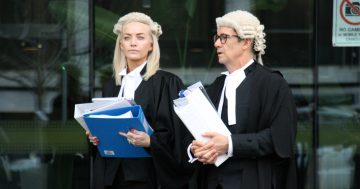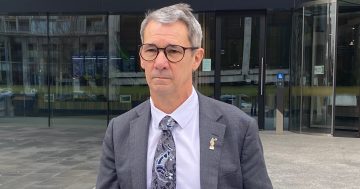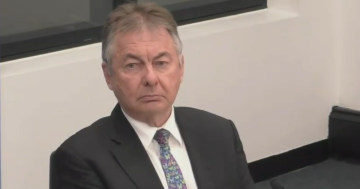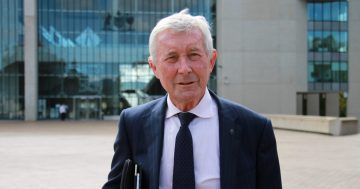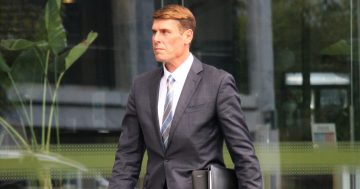
The David Eastman saga still casts a long, ugly shadow over the capital.
It casts a “shadow” for several reasons, and not necessarily due just to the personality of Eastman himself.
First, the cost. The cost of investigating, prosecuting, imprisoning and variously litigating the person charged with the 1989 murder of Assistant Commissioner Colin Winchester has been obscene – conservatively estimated at $10 million, but probably twice that when other policing and administrative costs are taken into account. Of course justice needs to be done, but costs of this magnitude should be prompting serious questions about how we run our criminal justice system.
It’s true that the expensive end of any administrative scale produces bigger expense for smaller “dividends”, but in the case of our courts such costs present a powerful case for reform. Eastman has relentlessly pursued every avenue to have his initial conviction thrown out – consistent, the critics would say, with his innocence – but it is astonishing to see how many avenues there actually were to pursue that goal.
Costs at the early stages were artificially inflated by Eastman repeatedly sacking his lawyers (necessitating “getting-up-to-speed” costs for the next set of advisors), but the real expenses mounted when repeated appeals and “inquiries” were pursued – something like a dozen. Can any legal system really afford to offer so many avenues for justice?
The steadily growing cost of all aspects of government (and yes, the courts are an arm of government) is an issue moving steadily closer to the top of our national agenda. Even as economies of scale ought to be pulling costs down, another factor keeps dragging costs higher: process. What once was done simply and according to the principles of common sense now needs an act of parliament spelling out each step in excruciating detail, proper notice to affected parties, review rights, accountability mechanisms, etc, etc. In the case – say – of asbestos-affected homes in Canberra, the administrative costs alone of removing the offending fluff probably exceeds the costs of installing it in the first place.
We can’t keep multiplying in this way the expense of government “doing things”. Any reasonable cost-benefit analysis will tell us that.
But back to Eastman. Courtesy of the 3 Supreme Court judges who ordered the retrial, we are committed to at least considering the question of whether he should be tried again for a crime committed over 25 years ago, of which he was once convicted nearly 19 years ago.
I was initially appalled at the idea of attempting to send to trial matters which happened so long ago. It is almost unheard of. I was convinced that due process – there’s that word again – would dictate that the prosecution would be terminated long before a jury is empanelled. Indeed, this might well be what occurs; either the Director of Public Prosecutions might decide that a conviction is impossible, and pull the plug there, or the trial judge at the outset of the trial might consider that the prejudice to the accused is too great, and do likewise.
But after reading the judgment, I have a different view. Their honours point out that the passage of time has been more damaging to the prosecution case than to the defence case. Many more prosecution witnesses have died than defence ones, it seems.
The forensic evidence which was used to convict Eastman has been comprehensively discredited, and rightly so. (This is another shadow the case casts over the ACT: to what extent is the police bungling which so undermined the forensic evidence an historical anomaly, and to what extent a subsisting weakness in our criminal justice system? And how will we ever know?)
But the judges pointed out that there is other evidence, not forensic evidence, which could support a conviction after all this time. The evidence of Eastman’s doctor, who said he heard Eastman make a threat to Winchester, and recordings of Eastman in his bugged flat, talking to himself in a remarkably incriminating way.
The essence of this evidence has not, the judges maintain, deteriorated over time. And looming over such considerations is a sobering reality: an abandonment of this prosecution would almost certainly leave one of the most serious assassinations in Australian history unsatisfactorily explained, and that outcome would be very strongly contrary to public policy.
It will cost us an arm and a leg. And a conviction will not settle the matter in everyone’s eyes – David Eastman’s obsessive personality will see to that. But a prosecution must nevertheless be brought. At the very least, we owe it to the taxpayer not to have nothing to show for such a vast expense after a quarter century of chasing the truth behind this awful crime.











